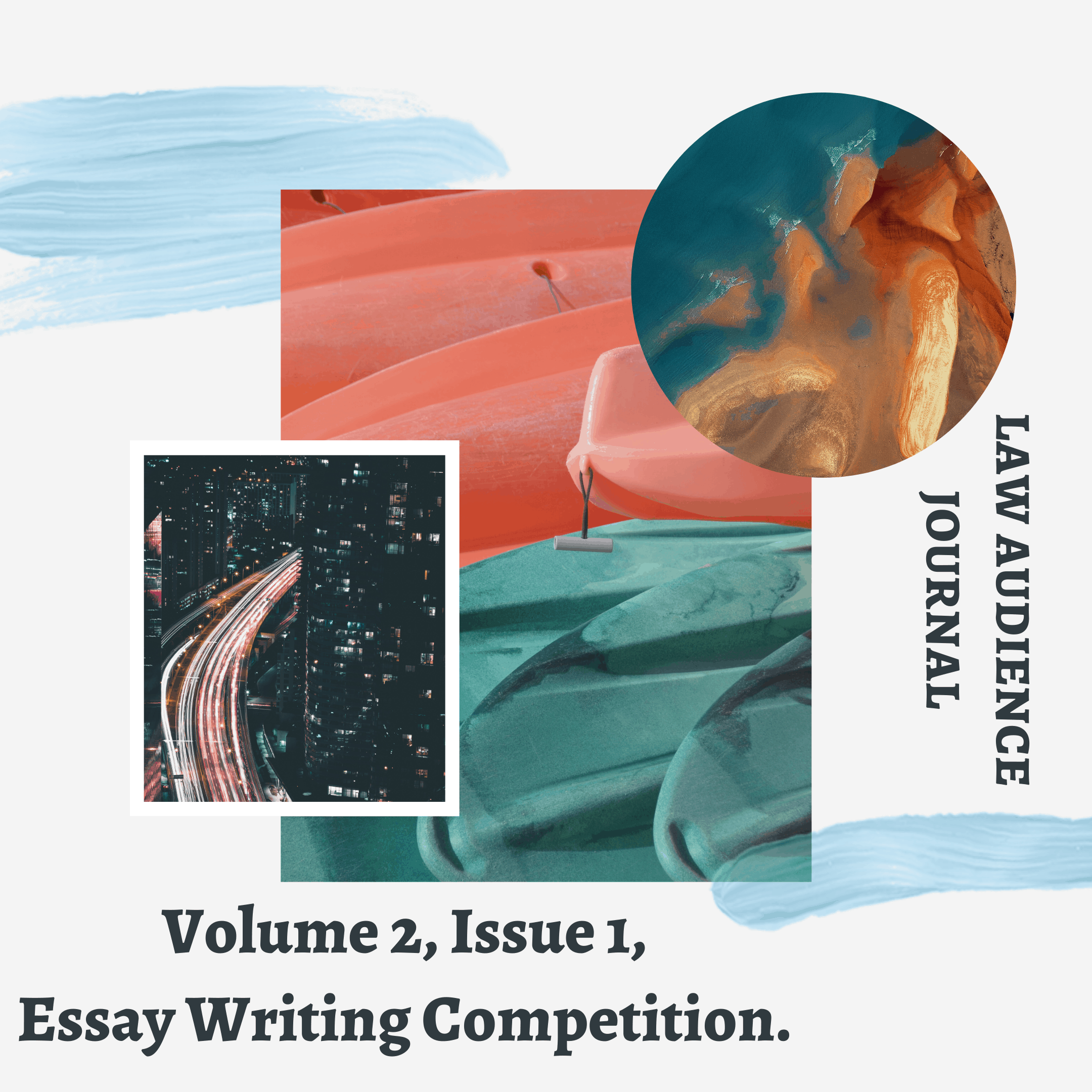AUTHORED BY: MS. ADITI PANDEY (B.A.LL.B), BANASTHALI VIDYAPITH, JAIPUR.
The UCC (Uniform Civil Code) is a concept which consists of a collection of laws and rules for governing the citizens of India in the place of their personal laws. This concept was made to deal with the personal matters of all citizens of different religion, it came into existence so that a decision can be taken irrespective of different religion and their religious beliefs. Aim of these rules was to ensure that people’s Constitutional right as well as a fundamental right is being protected or not. Its main motive was to replace the personal laws of Hindus and Muslims based on their customs, scriptures and religion. Since India is a country with great versatility in terms of language, customs, traditions, beliefs etc.
This is also one of the main reasons for the conflict in their views and opinions which results in many communal riots. It is one of the main issues nowadays and it’s the need of the hour to think on this matter and to do something regarding the contradictory provisions mentioned in the personal laws that are actually unconstitutional, but the irony is that in order to save their vote banks no government is ready to take a step against these personal laws like, The Hindu Law and Muslim laws etc. Not only the government but the citizens of our country are also very uncooperative, even though the people are educated enough to understand what beliefs and customs are wrong in their country but they are still practicing those traditions and are not only neglecting the dark side but are also protecting them by revolting against UCC and by opposing it in the constituent assembly.
Goa in India is the only state which has a Common Family Law and the Special Marriage Act also gives the liberty to the citizen of that state to marry outside the realm of any special or religious personal law. The concept of UCC came from the British Government in 1840 where they framed uniform laws and punishments for the crimes, evidences and contract. But they too left the personal laws of Hindus and Muslims, although it was also left by them intentionally somewhere too. In 1946 when the Constituent Assembly was set up for framing of the Constitution of Independent India, at that time too there were two types of people: on one hand, there were some intellectuals like Dr. B.R Ambedkar and the literate public that wanted to reform the society by bringing UCC (Uniform Civil Code) so that the gap between religions can be filled and judiciary can take decisions without being biased because if the UCC will be implemented then there will be one law for every person in spite of different religion but on the other hand there were some of the minority community mostly Muslims and their religious teachers who perpetuate Muslim personal laws.
Because of the opposition by minorities communities in the Constituent Assembly, the UCC was not successful and the result was that only one line was added in the constitution under Article 44 in part IV of DPSP (Directive Principles of State Policy) i.e., “The State shall endeavour to secure for the citizens a Uniform Civil Code throughout the territory of India[1]”. Since the line is been added in the DPSP they are neither enforceable in the Court of law nor any political discrepancy can go beyond it as the minorities especially Muslims do not want that their personal laws should be violated.
In 1985 the Supreme Court directed the parliament to frame Uniform Civil Code (UCC). This was directed because of the case named, Mohammad Ahmed Khan v. Shah Bano Begum[2] which was one of the most controversial lawsuits of India regarding the maintenance under section 125 of Code of Criminal Procedure because after 40 years of her marriage her husband had given her divorce by giving triple talaq (which was valid in Muslim personal law) and refused her regular maintenance too. The Court also gave the decision in the side of Shah Bano and that was the time when Chief Justice, Y.V Chandrachud noticed the need of the common governing law which will help in the national integrity and will also remove disparate loyalties to law. This was the reason for the direction of the Courts to parliament for the formation of UCC. It was really very unfortunate that instead of framing UCC the ruling party at that time under the leadership of Rajiv Gandhi made the Muslim Women (Protection of Rights on Divorce) Act, 1986, because of which the divorce matter of Muslims was still decided under their personal law. There are mostly two personal laws that are the main reason for the non-implementation of the UCC as these are contradictory to each other. First is Hindu Personal Law, these are the most primitive and ancient law which are still existing in the country and is known to the world at large. The Hindu Succession Act of 1956 governs this personal law of Hindus. It is a codified law which was been passed by the Parliament of India. The various provisions of this law govern the matter regarding the divorce of Hindus, their marriage, property-related matter, adoption of a child and many more.
The main source of the law and provisions are the customs prevailing and legislations, through which this law is derived. Now Muslim Personal Law is governed by Muslim Law (Shariat) of 1937. Its work is to look after all the matters regarding the maintenance, inheritance, divorce etc. Quran is the major source of Muslim Law. Muslims have two community i.e., Shia Community which is governed by the (Shia Law) and the Sunni Community governed by the (Sunni Law). Both the communities regulated their own laws which are derived from the Quran. Quran is been followed by each of them because it is said that the Quran is the Word of God and every Muslim must follow it. There is the presence of exactly opposite provisions in both the personal laws like, under the Hindu Law practice of polygamy is abolished whereas it is still present under the Muslim Law, adoption concept is there under Hindu Law whereas no such thing is there under Muslim Law, under Hindu law there is the concept of the separate and ancestral property whereas in Muslim Law there is only the concept of a joint and single property.
One more reason for the occurrence of communal riots is that the Hindu Law is been governed by the Hindu Succession Act, 1956 whereas Muslim Law is been governed by the Muslim Shariat Law Act of 1937 which leads to the questioning of different Acts for the governance of people of the different religion. The difference in the social, political and religious view leads to the fail of the application of UCC in India. UCC needs to be made applicable in a more effective way as it not only provides equal status to all the citizens but will also promote gender equality also. It will not only help to accommodate the aspirations of the youth, increase national integration but will also help to bypass the contentious problems regarding the personal laws. These personal laws sometimes even promote inhuman practices which are mostly based on their customs and traditions, so it helps to put a stop on those activities. Some of the actions mentioned under these personal laws are contrary to the fundamental rights which are been guaranteed in the Indian Constitution. UCC is a constitutional mandate because UCC is been mentioned under Article 44 as DPSP, although they can not be enforced by the Court, but it can be enforced by the legislature through the enactment of a law.
This concept will help the country to arrive at some universal principles and will also facilitate prioritizing equality. These personal laws are the laws that change from religion to religion, but in some or the other way, they are similar too and differ only in the customs. Every religion has different traditions, but they are been treated in their own way too. Since India is a secular country so the religious should be given respect too but only to those who are not supporting inhuman acts or are against fundamental and constitutional rights. It is also required that there should be the same laws for all the citizens of India irrespective of their religions and religious beliefs because here the concept of “Equality before the law” and is been followed.
The application of UCC can be only done through an evolutionary process, major efforts are been needed to reform current personal law and this could be only possible by the first initiatives of the communities itself. This current institution needs to be strengthened by modernizing and democratizing the changes in the institutions. Sincere efforts are been required to be put for the empowerment of women belonging to any religion. Therefore, proper efforts should be made for the implementation of the Uniform Civil Code (UCC) as it will lead to an increase of unity and harmony of India.
[1] The Constitution of India.
[2]Mohammad Ahmed Khan v. Shah Bano Begum [AIR 1985 SC 945].


